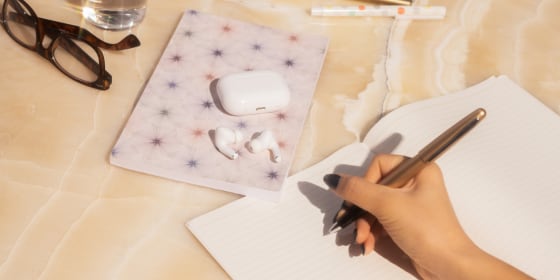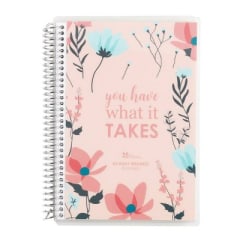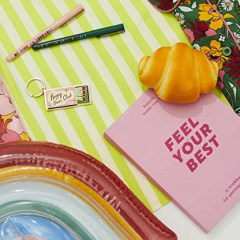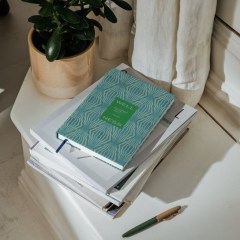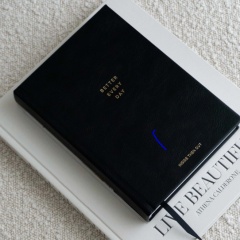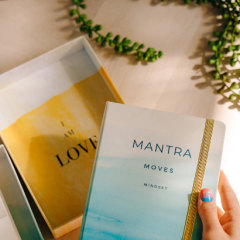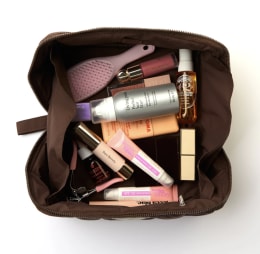How often do you get a moment to just sit and reflect on your day? It seems like everywhere you turn, there's something else pulling you in another direction. It can be overwhelming, to say the least.
Mindfulness is a practice that exists in many forms but one of the best ways to sort through the mess of your mind is journaling. Shop TODAY consulted experts about how to get into the practice and how to keep it from becoming just another thing on your to-do list.
What is mindfulness? | Benefits of journaling | Tips to keep with it | Meet the experts
What is mindfulness?
Mindfulness, the experts say, is really about paying attention to everything we’re doing, remaining present and in the moment for every task, no matter how mundane.
“Mindfulness is paying attention to our present moment experiences with openness and curiosity and willingness to be with that experience,” says Diana Winston, director of mindfulness education at UCLA’s Mindful Awareness Research Center.
“It’s not a self-improvement task. It’s a practice of noticing, of being aware without judging, trying to fix, resisting or grasping, but to become a ‘loving witness’ of our human life,” adds Moun D’Simone, mindfulness instructor at Sage + Sound. “Mindfulness is a practice where we create space to notice what is arising — feelings, thoughts, sensations and emotions — by noticing without giving in to the critical part of us that always wants to do something about it.”
What are the benefits of keeping a mindfulness journal?
There’s more benefits to keeping a mindfulness journal than just general reflection.
“When we’re stressed, we tend to hold [in]...frustration, worry, resentment or sadness,” says Eve Lewis Prieto, director of meditation and mindfulness at Headspace. “I think writing down our thoughts and our feelings in a non-judgmental way can provide a really healthy outlet for the stress that we might be experiencing.”
Prieto also calls out appreciation and gratitude as another benefit of keeping a mindfulness journal. “It’s quite rare that we take a pause and acknowledge the little things in our day, the people we experienced. The more that we can open space to appreciate the things that we do have in life — rather than focusing on the things that we don’t have — it tends to help soften the heart and, in turn, it can encourage us to do not only nice things for ourselves, but for other people, as well.”
Tips for practicing mindfulness
Whether this is your first time engaging in mindfulness practices or you’ve tried before and couldn’t keep up with it, the experts shared a few tips to guide you:
- Start simply. The biggest barrier to consistency is setting unreal expectations for yourself from the very beginning. Both D’Simone and Winston recommend starting with just five minutes a day and if you like that and find it easy to keep up with, you can add more time as you go along.
- Be consistent. When you’re trying to build a habit, consistency is key, but we know life happens. “You may not do it every day but try to do it as frequently as possible,” says Winston. Eve adds that the “beauty of practices like mindful journaling is that you just pick up where you left off,” so there’s no pressure to do it every single day.
- Be patient with yourself. “The first thing to remember is that it’s a practice,” D’Simone says. “You are training a new muscle and it takes time and patience. Imagine seeing mindfulness as an anchor, a friend to return to where you are exactly in each moment.” Prieto echoes similar sentiments and recommends giving yourself grace through the beginning of the year as you start to set new habits.
Meet the experts
- Diana Winston is the director of mindfulness education at UCLA’s Mindful Awareness Research Center and the author of "The Little Book of Being: Practices and Guidance for Uncovering Your Natural Awareness." She has been teaching mindfulness since 1999.
- Moun D'Simone is a spiritual guide, mentor and artist who currently teaches at Sage + Sound in New York City.
- Eve Lewis Prieto is a certified mindfulness and meditation teacher. She is currently the director of mindfulness and meditation at Headspace.
The Flat Lay Co. Flat Lay Makeup Bag
The Flat Lay Co. Flat Lay Makeup Bag

